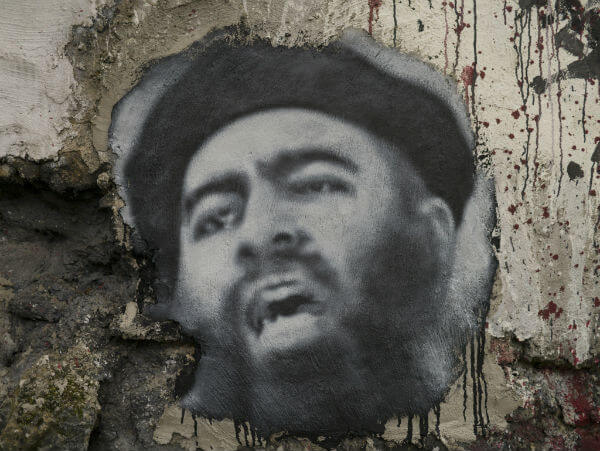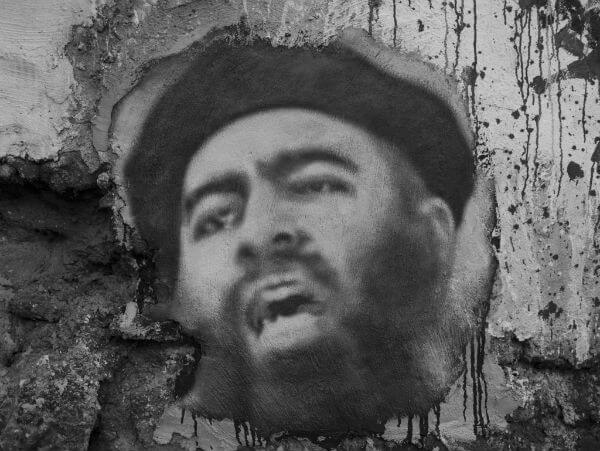
If there’s one thing I’m grateful for Donald Trump expressing, it’s his contempt for political correctness.
There is no value in sensitivity if it merely serves to mask bigotry.
Discourse in which, for instance, racism has been thoroughly expunged, turns out to be discourse in which racists can freely participate with much less risk of being challenged.
Trump is being disingenuous, of course, in claiming that he disavows political correctness, because it’s actually an indispensable tool in his art of deceit. He panders to and expresses his own Islamophobia when saying he’d stop Muslims entering the U.S. but at the same time, postures as Muslim-friendly by claiming he loves Muslims.
Political correctness is no substitute for honesty. Indeed, this has been its most corrosive effect: that it inhibits people from honestly expressing their views and exposing their prejudices.
Richard Falk picks up this theme when noting that in the U.S., in the name of being politically correct and culturally sensitive, many Americans avoid referring to Christmas in deference to non-Christians who don’t celebrate this holy day. Falk, however, gladly appropriates the word and in this celebration sees universal meaning.
As a Jew in America I feel the tensions of conflicting identities. I believe, above all, that while exhibiting empathy to all those have been victimized by tribally imposed norms, we need to rise above such provincialism (whether ethnic or nationalistic) and interrogate our own tribal and ‘patriotic’ roots. In this time of deep ecological alienation, when the very fate of the species has become precarious, we need to think, act, and feel as humans and more than this, as empathetic humans responsible for the failed stewardship of the planet. It is here that God or ‘the force’ can provide a revolutionary comfort zone in which we reach out beyond ourselves to touch all that is ‘other,’ whether such otherness is religious, ethnic, or gendered, and learning from Buddhism, reach out beyond the human to exhibit protective compassion toward non-human animate dimensions of our wider experience and reality. It is this kind of radical reworking of identity and worldview that captures what ‘the Christmas spirit’ means to me beyond the enjoyment of holiday cheer.
From this vantage point, the birth of Jesus can be narrated with this universalizing voice. The star of Bethlehem as an ultimate source of guidance and the three wise kings, the Maji, who traveled far to pay homage to this sacred child can in our time bestow the wisdom of pilgrimage, renewal, and transformation that will alone enable the human future to grasp the radical wisdom of St. Augustine’s transformative: “Love one another and do what thou wilt.” Put presciently in a poem by W.H. Auden, “We must love one another or die.”
I referred to Falk appropriating Christmas, aware that there are Christians who might object to a Jew saying what Christmas means (even though Jesus was Jewish) and in order to raise the wider issue that seems to be popping up with unfortunate frequency: one of the bastard children of political correctness, cultural appropriation.
Cultural appropriation is a phrase that can usefully be applied in limited and rather obvious ways.
In 1992, when Hindu nationalists destroyed the 16th-century Babri Masjid mosque in Ayodhya, Uttar Pradesh, India, they did so in the name of reclaiming the site of the birthplace of the god, Rama. This came 464 years after Muslim invaders had apparently destroyed a Hindu temple at this site. In the intervening period, Hindus and Muslims had both worshiped at the same location.
When conflicting parties with differing cultural identities each claim to own the same place and then alternately snatch it from one another, this can reasonably be described as cultural appropriation.
While each advocates its claim in the name of one divine authority or another, all are saying exactly the same thing: this is mine; it’s not yours.
But when someone in Los Angeles practices yoga in an effort to fine-tune a perfect body, does this degrade Indian culture? Have they claimed as their own, something that belongs to someone else? Not really.
The proliferation of yoga studios across America and the secularization of yoga by treating it as a form of fitness training, has done nothing to close off opportunities for people to explore yoga as a spiritual discipline or learn about its roots in Indian culture. Indeed, the fact that yoga has exported so easily is not because it got stolen by cultural plunderers, but because it comes out of a culture that fosters a universal sense of belonging.
As Michelle Goldberg writes:
India is a country of dizzying dynamism, one that has always eagerly absorbed elements from other cultures into its own while proudly sharing the best of its own culture with the world. “All humanity’s greatest is mine,” wrote poet Rabindranath Tagore, who won the 1913 Nobel Prize in Literature. “The infinite personality of man (as the Upanishads say) can only come from the magnificent harmony of all human races. My prayer is that India may represent the co-operation of all the peoples of the world.” Tagore — who, incidentally, wrote India’s national anthem — founded a university whose motto translates to, “Where the whole world meets in a single nest.”
This is the essence of cosmopolitanism. Obviously, power plays a role in the way cultures develop. Symbols and practices can be wrenched from their traditional contexts and used in ways that are disrespectful. When privileged American kids party while wearing Native American headdresses, it looks like they’re donning the spoils of a long-ago war. But the way that some contemporary activists would silo different cultures — as if anything that travels from outside the West is too fragile to survive a collision with raucous mixed-up modernity — is provincialism masquerading as sensitivity. There’s no such thing as cultural purity, and searching for it never leads anywhere good.
Across the globe, many cultures are under threat — languages are being forgotten and indigenous wisdom lost. But the idea that a culture can be protected behind barriers of insulation, treats culture as a static entity that is preservable. If it has arrived at such a condition, it is most likely already dead.
An endangered language can only be protected by being taught, spoken, and shared. It either grows or withers. Likewise and more broadly, cultures are fertilized at their margins where the familiar and unfamiliar interact, thereby generating new cultural forms.
What threatens culture more than anything else is the commercially driven shift away from cultural creation to cultural consumption.
To the extent that culture is something we passively absorb rather than actively construct, the infinitely varied vantage points from which we each see the world will get overshadowed by whatever forms can be most easily reproduced and massively distributed.
Culture is what we make it. It cannot be kept alive in empty vessels.






